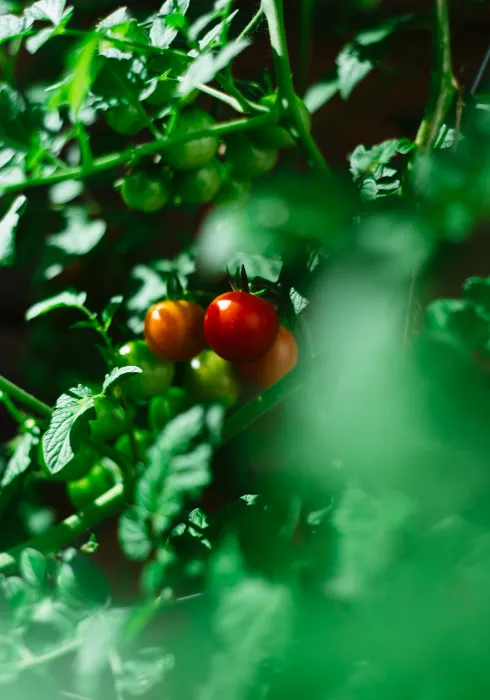What Vegetable and Herb Plants Need Pruning

Disclosure: Some of the links in this article may be affiliate links, which can provide compensation to me at no cost to you if you decide to purchase. As an Amazon associate I may earn on qualifying purchases
Pruning is an essential gardening technique that helps promote healthy growth, improve plant appearance, and increase yields. While it is commonly associated with fruit trees and ornamental plants, pruning also plays a vital role in maintaining the well-being of certain vegetable and herb plants. In this article, we will explore which vegetable and herb plants benefit from pruning, understand the pruning process for each, discuss the optimal timing for pruning, and delve into the research behind pruning practices.
1. Understanding Pruning:
Pruning involves the selective removal of specific plant parts, such as stems, branches, or leaves, to enhance the overall structure and health of the plant. By removing unwanted or damaged parts, pruning encourages the growth of new shoots, redirects the plant's energy towards essential areas, and improves air circulation and light penetration. Additionally, pruning helps control diseases and pests, ultimately leading to a more productive garden.
2. Vegetable Plants that Benefit from Pruning:
a. Tomato Plants:
Tomato plants are one of the most commonly pruned vegetable plants. Pruning helps to increase airflow, reduce disease susceptibility, and improve fruit quality. Research has shown that removing the suckers, which are the shoots that develop between the main stem and leaf branches, can redirect the plant's energy into fruit production. Pruning also helps prevent overcrowding and allows for better access to sunlight, leading to healthier and more flavorful tomatoes. However, it is important not to over prune tomato plants, as excessive removal of foliage can reduce photosynthesis and affect fruit ripening.
b. Bell Pepper Plants:
There is controversy here in the plant world about this one, but I have found that I get a bushier plant that has more produce if I "top" it off at the beginning of the growing season. Top off the pepper plant when it has about 5 leaf levels counting from the bottom of the plant.
3. Herb Plants that Benefit from Pruning:
a. Basil Plants:
Pruning basil plants helps maintain a compact shape and encourages the growth of fresh, flavorful leaves. Research suggests that regular pruning stimulates branching and leads to increased leaf production. By pinching off the top pair of leaves above a leaf node, you can promote bushier growth and prevent the plant from becoming leggy. Harvest the pruned leaves for culinary use to enjoy the full flavor of this aromatic herb.
b. Mint Plants:
Mint plants tend to spread vigorously, and pruning helps control their growth and prevent them from taking over your garden. Trim back the stems by cutting just above a leaf node, which will encourage bushier growth. Regular pruning also ensures that the leaves maintain their flavor and aroma.
c. Oregano Plants:
Pruning oregano plants not only helps maintain their shape but also encourages the growth of fresh leaves. Research indicates that pruning oregano plants by cutting back one-third of the stems stimulates new growth and promotes a fuller and healthier plant. Harvest the pruned stems and leaves for culinary purposes, and dry them for later use.
4. Optimal Timing for Pruning:
Timing is crucial when it comes to pruning vegetable and herb plants. Here are some general guidelines:
a. Tomatoes: Prune indeterminate tomato plants throughout the growing season, starting when they have a few sets of leaves. Avoid excessive pruning during flowering and fruiting stages. Research suggests that early pruning can lead to a higher percentage of large-sized fruit and better overall yield.
b. Basil: Prune basil regularly throughout the growing season, especially before it starts flowering.
Pinch off the flowers to encourage leaf production.
c. Mint: Prune mint plants in early spring or after flowering to encourage new growth.
Make sure your pruning shears are sharp and maintained. Learn more here
5. Research Behind Pruning Practices:
Pruning techniques for specific vegetable and herb plants are often backed by research and empirical evidence. Agricultural universities, extension services, and horticultural organizations conduct studies to determine the effects of pruning on plant growth, yield, and disease resistance.
Research on tomatoes, for example, has explored the impact of pruning on fruit quality and overall plant productivity. These studies help establish best practices and recommendations for gardeners, ensuring they make informed decisions when it comes to pruning their vegetable and herb plants.
Pruning vegetable and herb plants is a valuable technique that can enhance their growth, health, and productivity. Understanding the plants that benefit from pruning, mastering the pruning techniques, and adhering to optimal timing can make a substantial difference in the overall success of your garden. By incorporating research-backed practices, you can enjoy abundant harvests and thriving plants throughout the growing season.
Related Articles:
How to Sharpen and Maintain Hand Pruners:
https://inthegardensue.com/blog/how-to-sharpen-and-maintain-felco-hand-pruners
Flower Power: Enhance your well being with Indoor Blooms
https://inthegardensue.com/blog/flower-power-enhance-your-well-being-with-indoor-blooms
Does pH of Soil Affect Plant Growth?
https://inthegardensue.com/blog/does-ph-of-soil-affect-plant-growth
The Best Hand Pruners for Arthritic Hands: A Review
https://inthegardensue.com/blog/the-best-hand-pruners-for-arthritic-hands-a-review
Review of the 5 Best Garden Stools for Seniors
https://inthegardensue.com/blog/review-of-the--5-best-garden-stools-for-seniors
Disclosure: Some of the links in this article may be affiliate links, which can provide compensation to me at no cost to you if you decide to purchase. As an Amazon associate I may earn on qualifying purchases


